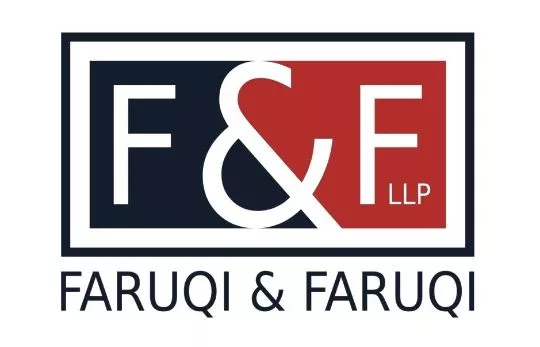In Friel v. Dapper Labs, Inc., 2023 WL 2162747 (S.D.N.Y. Feb. 22, 2023), the United States District Court for the Southern District of New York, in denying a motion to dismiss a class action Complaint, held that sufficient allegations were made against Dapper Labs for violation of the securities laws by offering for sale certain non-fungible tokens, or NFTs, called NBA Top Shot Moments, to the public without filing a registration statement with the Securities and Exchange Commission. Key to this holding was the Court's finding that the NFTs at issue could be securities under SEC v. W.J. Howey Co., 328 U.S. 293 (1946), commonly referred to as the Howey test. Dapper Labs at *8. As the Court pointed out, at the motion to dismiss stage Plaintiffs must plead facts adequately establishing the following prongs of the Howey test: "(1) an investment of money (2) in a common enterprise (3) with the expectation of profit from the essential entrepreneurial or managerial efforts of others." Id. at *8.
NFTs are "digital assets whose authenticity and ownership can be recorded on a blockchain". Id. at 4. A blockchain, in turn, is a "decentralized digital ledger" which can be used to not only "store information about the transfer of the currency but can also be applied to record ownership of a wide variety of more traditional assets." Id. at *2. Dapper Labs created its own private blockchain which used "Proof of Stake" validation, a form of validation by the network of users which "requires miners to 'stake' or lock up tokens or assets that they already own." Id. at *3.
Dapper Labs launched NBA Top Shot, its own blockchain application, as a joint venture with the NBA and the NBA Players Association. The blockchain application was built on top of Dapper Labs's pre-existing Flow Blockchain, a private blockchain. Primarily, the point of the NBA Top Shot application is to provide a platform from which to sell the NFTs at issue. These NFTs, referred to as Moments, are digital video clips of NBA game highlights. These Moments can be acquired either through Dapper Labs, which sells packs of them on its NBA Top Shot application, or on a secondary marketplace "hosted on the NBA Top Shot application", which is "created and controlled by Dapper Labs". Id. at *5. Dapper Labs, in turn, generates revenue from selling Moments in three ways: Selling packs of Moments, a 5% transaction fee whenever Moments are sold on the Marketplace, or a "cash-out fee" "when purchasers transfer their balance from the Dapper Wallet to their bank account." Id. at *5.
While at first glance these Moments may seem like trading cards one would save on their computer (much like one would keep a traditional trading card in a shoebox), the Court's analysis under Howey led it to the possibility that these NFTs could be securities. In differentiating Moments from, say, collectibles, the Court pointed out that Plaintiffs plausibly alleged that the value of Moments, which are unique and have "a differing value based on serial number or the highlight represented", "is dependent upon the success of Dapper Labs". Id. at *13. Specifically, Dapper Labs controls the private Flow Blockchain, Moments cannot be traded or sold outside of the secondary marketplace Dapper Labs controls, and the only thing "that Moments purchasers own is, essentially, the line of code recorded on the Flow Blockchain, as no other rights to use or display the image are transferred." Id. at *13. As the Court reasoned, if "Dapper Labs went out of business and shut down the Flow Blockchain, the value of all Moments would drop to zero", something which would not necessarily be the case if you bought a collectible and the business that sold you that collectible went under. Id. at *13. Further, the Court found that, based on "Defendants' public statements and marketing materials", purchasers were objectively led to expect profits and that, to this end, purchasers primarily purchased Moments as an investment as opposed to for mere consumption. Id. at *17. In other words, a Moment provides a purchaser with more than, say, the opportunity to watch a video clip of Lebron James dunking in a playoff game: it provides the purchaser with an investment that can provide financial returns.
To be clear, the Southern District's decision in Dapper Labs does not hold that all NFTs are securities. Nor does it definitively rule that the NFTs at issue here are securities. But it does critically find that allegations that an NFT is a security are plausible and sufficient to survive a motion to dismiss, if adequately plead of course. As the Court held towards the end of its decision in concluding its analysis under the Howey test:
The allegations that Dapper Labs created and maintains a private blockchain is fundamental to the Court's conclusion. By privatizing the blockchain on which Moments' value depends and restricting the trade of Moments to only the Flow Blockchain, purchasers must rely on Dapper Labs's expertise and managerial efforts, as well as its continued success and existence. As Plaintiffs allege, this is unlike public blockchains, such as that underlying Bitcoin. (AC ¶¶ 23, 84.) The privatization and restrictions that Dapper Labs implements are what distinguish Moments from cardboard basketball cards, which can be freely alienated to whomever and over whatever platform the owner prefers.
Id. at *22 (emphasis added).
It will be interesting to see if Dapper Labs reaches the motion for summary judgment stage, at which time the Court may have to revisit the issue of whether these NFTs are securities, such that the filing of a registration statement with the Securities and Exchange Commission was required.
The content of this article is intended to provide a general guide to the subject matter. Specialist advice should be sought about your specific circumstances.


